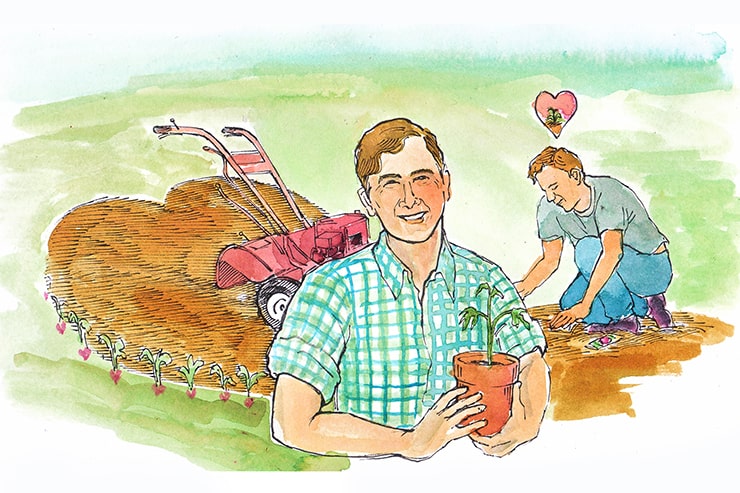
It happens every year. Every Spring.
I forget all my failures. I forget the tomato seedlings that cooked in the cold frame last May. I forget the waves of weeds that took over in August. I forget flowers that didn’t germinate, broccoli that didn’t head, the sprinkler that didn’t work. I even forget the Japanese beetles. (How could anyone ever forget Japanese beetles?!)
No, rather than learn from these lessons and leave well enough alone, I rise early on a Saturday morning (no fool like a gardening fool), go out to the shed, and start begging Dobbin, my rusty (Whoops—that’s trusty, Dobbin, trusty. Honest, girl!) old rototiller to start. I brush her tines, stroke her choke, plead, and crank until she sputters to life.
Then she and I, we go out and roll some earth. Ribbon on ribbon of it, loose and soft behind us. After that, a bit of fertilizing, a little shaping, a rush back to the house for seeds, and I’m ready to plant.
All’s right with the world.
I’m gardening again.
That’s how little it takes to make me forget the blights, weeds, and pests. To get my mind filled with dreams and my hands grubby with dirt. To get me hooked on another year of work, struggle, and reward in the garden.
Call me crazy if you want. But let me tell you something: Lots of people feel a strong bonding to plants and soil. It may be a primary impulse in our being. Gardening, you see, is much more than a self-imposed list of chores. Much more than a set of step-by-step instructions, a box of parts with the note, “Some Assembly Required.”
Gardening is not a recipe you follow, it’s a relationship you live. It’s connecting people and plants. No wonder it’s frustrating. After all, gardeners are learning how to communicate with completely alien species—ones that don’t walk, talk, or drink out of pet bowls. Ones that often give very blunt answers: They live or they die.
But no wonder it’s so fulfilling. Plants are, after all, the primary life expression of the earth itself, the basic clothes and beauty of the creation upon which we all depend. When we work with them, not only does it benefit both of us, it nurtures a very deep bond.
Gardening, I have finally realized, is not about blights or weeds. It’s not about soil-turning or seed-sowing. It’s not about food and flowers. It’s not even about Japanese beetles.
It’s about love.
And that’s why, every Spring, you find me once again turning ground. Working the soil.
Planting seeds.
Gardening. ❖


 Previous
Previous


